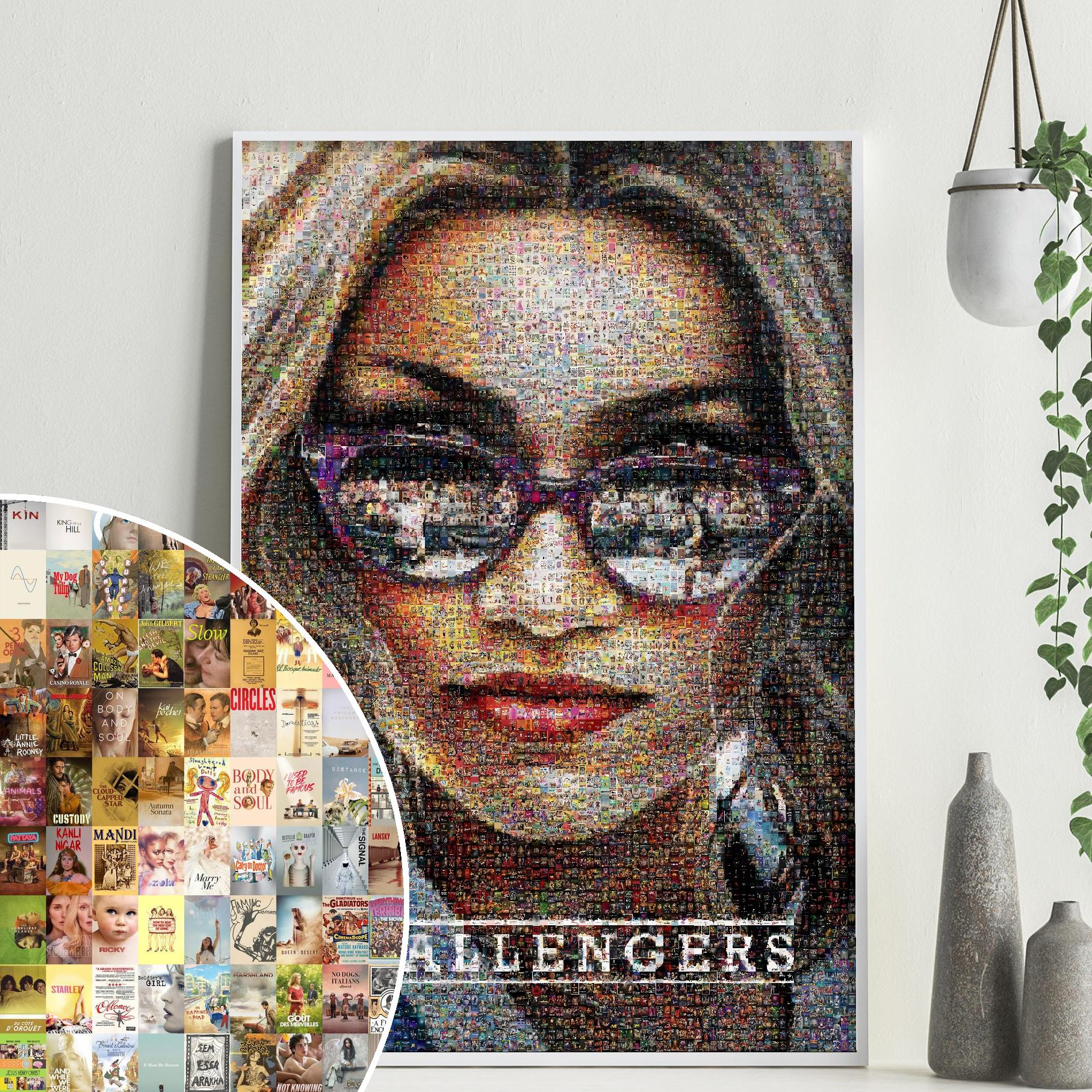Building a Movie Poster Mosaic Generator
A Python application that generates mosaic movie posters from thousands of smaller poster thumbnails using color analysis.
I built a Python application that generates movie posters made up of thousands of tiny movie poster thumbnails. The program analyzes colors to create a larger image mosaic while maintaining visual coherence.
The Technical Challenge
Creating photo mosaics presents several interesting technical challenges:
- Analyzing and matching colors effectively across thousands of images
- Optimizing image processing for reasonable performance
- Maintaining visual quality at both macro and micro scales
- Handling different poster aspect ratios and sizes
The core of the solution uses k-d trees for efficient color matching and PIL for image processing. Here’s a simplified example of how the color matching works:
def build_kd_tree(color_data):
points = []
filenames = []
for filename, details in color_data.items():
dominant_color = details['colors'][0]
points.append(dominant_color)
filenames.append(filename)
return KDTree(points), filenamesImage Processing Pipeline
The full process involves several steps:
- Download and preprocess movie poster images
- Extract dominant colors from each poster
- Build a searchable color database
- Generate the mosaic by matching target colors
- Create final output in multiple sizes with proper DPI
Optimization Techniques
Some key optimizations I implemented:
- Caching preprocessed image data in JSON
- Using numpy for faster color calculations
- Implementing parallel processing for image analysis
- Pre-filtering images based on color characteristics
Production Features
Beyond the core mosaic generation, I added several features for production use:
- Multiple output sizes (16x20”, 18x24”, 24x36”)
- Border and borderless variants
- High-resolution 300 DPI output
- Preview image generation
- Automated listing photo creation
Lessons Learned
This project taught me a lot about:
- Color space mathematics and perception
- Image processing optimization techniques
- Working with large datasets of images
- Balancing quality vs performance tradeoffs
The most challenging aspect was tuning the color matching algorithm to produce visually pleasing results while maintaining reasonable processing times.
Built with Python, PIL, numpy, and lots of movie posters
